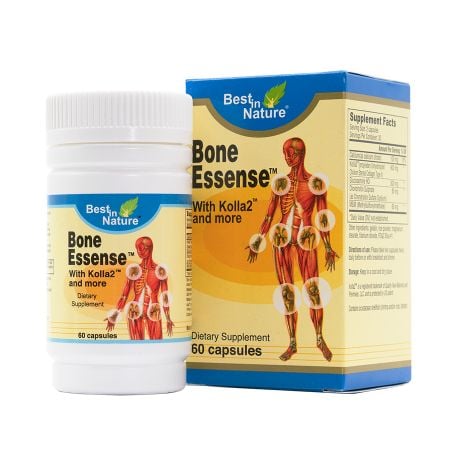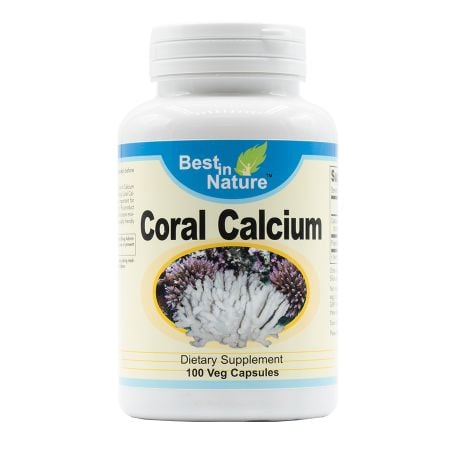
Collagen has traditionally been discussed in the context of skin suppleness but with all of the new supplements hitting the market, you’re probably wondering what all of the hype is about. As it turns out, there are several types of collagen and it’s one of the most abundant forms of protein in the human body. So let’s take a closer look at what collagen is, the types of collagen, and the range of benefits that it can provide.
What is Collagen?
Collagen is the most prevalent form of protein in the body and the main component of connective tissues including tendons, ligaments, skin, and muscles.
There are many different types of collagen with precise functions in the body but the primary few are :
Type I provides structure to your skin, bones, tendons, and ligaments
Type II helps to maintain structure, strength and flexibility in connective tissues like cartilage
Type III is found in muscles, arteries, and organs
Type IV is found in the layers of your skin
Type V is found in the cornea of your eyes, some layers of skin, hair, and placenta tissue
[READ: What is Kolla 2]
Sources of Collagen
There are several ways for your body to get collagen including from the food you eat, supplements or producing its own by combining amino acids.
Food sources of collagen include:
- Bone broth is one of the richest food sources of collagen. The exact amount can vary based on the type of bones used and cooking time.
- Connective tissues like chicken skin or fish skin, beef tendons or chicken feet are also rich in collagen. But these sources can also be high in fat and cholesterol.
[READ: 14 Food Sources of Collagen]
In addition to the above sources, you should also consider these nutrients which your body needs for collagen production.
- Vitamin C which can be found in citrus fruits, strawberries, bell peppers and other fruits in varying amounts is essential for collagen synthesis.
- Copper is needed for collagen stability. Food sources include organ meats, nuts, seeds, and shellfish
- Iron is used in the hydroxylation of proline and lysine in collagen synthesis. Iron-rich foods include red meat, poultry, fish, beans, and spinach.
- Zinc is involved in collagen metabolism and stabilization. Food sources of zinc include meat, shellfish, legumes, seeds, and nuts.
- B-Complex vitamins such as B7 (biotin) and B3 (niacin) are involved in skin health and collagen synthesis. Foods like eggs, nuts, seeds, and whole grains provide B vitamins.
The Benefits of Collagen
As you age, your body’s ability to produce collagen diminishes. This is central to how we understand aging. As a result, collagen supplementation may have several health benefits, specifically in the aspect of healthy aging.
1. May Improve Joint Health and Mobility
Collagen is a central component in joint health and mobility as the substance of which of the joints rely on for strength and structure. As the body’s ability to produce collagen diminishes your risk for degenerative joint disorders such as osteoarthritis increases.
Studies on collagen often focus on whether supplementation can help to alleviate osteoarthritis pain and overall joint pain or even preserve mobility. A review of several studies on Type II collagen found that participants reported significant improvements in joint stiffness and overall osteoarthritis symptoms.
However, the precise mechanism by which collagen provides these benefits is a matter of debate. Some scientists theorize that collagen can accumulate in the cartilage and further stimulate collagen production resulting in reduced inflammation and thus lessening pain. Others, however, propose that the body simply breaks the collagen down into peptides and amino acids that simply help to lower inflammation bypassing accumulation in the bones and joints directly.
Bone Essense Provides 600mg of Type II Collagen in every serving. See if it’s right for you.
2. May Prevent Bone Degradation
Calcium and magnesium are the often-sung superstars of bone health. But ⅓ of your bone composition is actually collagen. And just as your ability to produce collagen decreases with age so too does your overall bone mass.
As a result, one may wonder whether collagen plays a role in holding off osteoporosis. Studies on that matter seem promising and support the idea that collagen supplementation may hold off the bone degradation that leads to osteoporosis and osteoarthritis. They even showed the potential to increase bone mineral density.
A one-year study of post-menopausal women compared a group who took calcium, vitamin D and 5 grams of collagen to a group who only took the calcium and vitamin D. The collagen group experienced less bone loss at the study’s end. Blood tests found that they also had less proteins that cause bone breakdown than the non-collagen group.
[READ: 16 Ways to Build and Maintain Healthy Bones]
3. May Help to Preserve Skin Health
Collagen is also a major component of your skin which provides it with strength, elasticity and hydration. The most visible signs of aging, as you may be guessing now, are a result of the body’s diminished ability to synthesize collagen as you age.
A few studies have shown that collagen supplementation may actually reduce wrinkles and dryness. There are two studies in which participants were give 3 grams of collagen tripeptide per day for 4 to 12 weeks after which they showed notable improvement in skin elasticity and hydration.
4. May Preserve or Increase Muscle Mass
When it comes to muscles, it’s "protein protein protein". As we said previously, collagen is one of the most abundant proteins in the body. It’s degradation is related to muscle mass and composition changes with age. The result is muscles that are smaller, more rigid, and less toned. Supplementation would seem like it could help protect against this degradation to some extent.
A 2015 placebo-controlled study had 53 older-male participants do resistance training for 12 weeks. At the end of the study, the collagen group had increased fat-free muscle mass and strength compared to the placebo group.
5. May Improve Heart Health
For several reasons, scientists believe that collagen could play a role in preventing heart disease. Collagen provides structure to your heart’s arteries. Decreased or insufficient collagen could result in arteries that are stiffer and less elastic.
When put to the test in small-scale studies, collagen was able to improve several key areas of heart health. A review published earlier this year (2023), found collagen contributed to lower LDL cholesterol and systolic blood pressure indicators linked to cardiovascular disease. In a different 6-month study, participants took 16 grams of collagen daily and experienced a significant reduction in measures of arterial stiffness.
6. May Aid in Gut Health
In studies, there has also been a correlation between low levels of collagen and inflammatory digestive conditions such as inflammatory bowel disease. Type IV collagen is a part of connective tissue, which makes up your colon and GI tract. Some researchers have proposed that bringing your collagen levels up can help to alleviate inflammatory digestive conditions although more research is needed.
7. Collagen is an Easy-to-Digest Source of Protein
If you’ve ever been or known a gym enthusiast, it quickly becomes clear that protein can be a bit hard to digest for some people. Meals or protein shakes can be followed by burping or an upset stomach.
The process of hydrolyzation, which collagen undergoes when made into supplements, breaks down the proteins and makes them easier to digest.
Are There Plant-Based Sources of Collagen?
Collagen is a protein with a unique structure that isn’t found in plants naturally. Vegan-friendly collagen formulations can be made with intensive processing and are derived from modified yeast and bacteria.
Some supplements rather than providing complete collagen, have precursors like glycine, lycine, and proline which can (but not always) be derived from plant sources.
The Importance of Avoiding Sugar if You Have Collagen Concerns
If you’re concerned about your collagen levels, sugar is of extra concern. Sugar and refined carbs can damage the collagen in your body while also contributing inflammation and potential weight gain (which can further strain bones and joints). Ensuring the best results from supplementation or simply increased intake of collagen-rich foods may require some dietary modifications.
Bottom Line
Collagen and its role in the visible effects of aging are hot topics of discussion. But collagen’s role in health and aging goes much deeper than that and is central to how we understand the effects of aging. Supplements or dietary modification could offset some of these effects but like many areas of health, there is more research needed to prove this conclusively.
This article is provided for informational purposes only and is not intended to be used as medical advice. If you have immediate concerns about your health, please seek the help of your physician.
*These statements have not been evaluated by the Food and Drug Administration. Products are not intended to diagnose, treat, cure or prevent disease.







Validate your login
Sign In
Create New Account